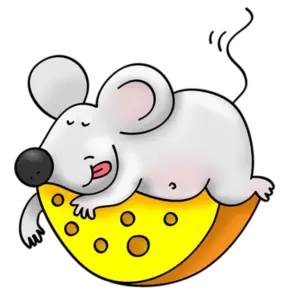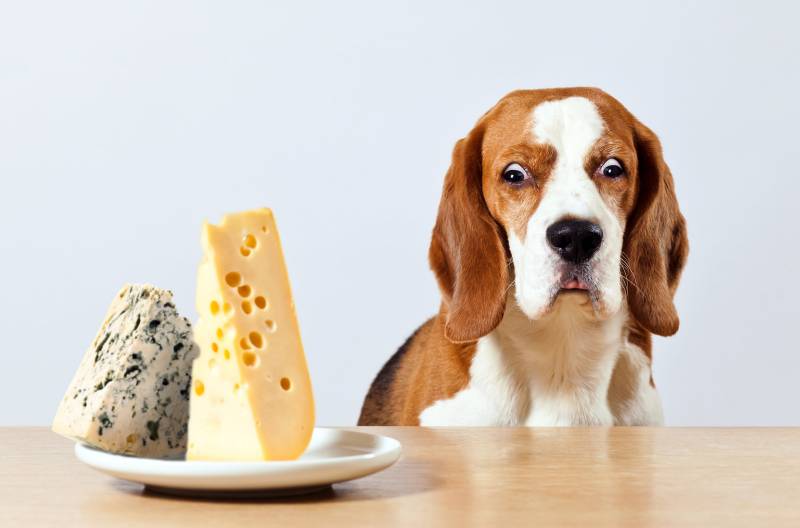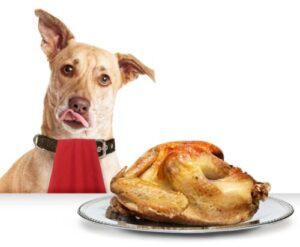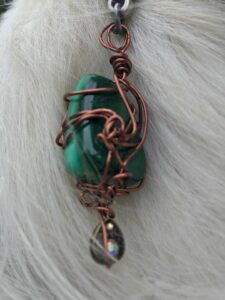Can Dogs Eat Cheese?
The Ultimate Cheese Guide for Dogs
Dogs can eat small amounts of cottage cheese, goat cheese, mozzarella and uncoloured cheddar cheese. The best cheeses are organic and non-GMO. Keep your dog away from dangerous salty or moldy cheeses like parmesan, blue cheese, stilton or cheese with nuts, fruits or chocolate.
Our Ultimate Cheese Guide rates several different types of cheese and tells you exactly which cheeses are “best, good and worst” for your dog. Take a copy to the grocery store so you know what to buy for your cheese-loving fur kid.
Is Cheese Good for Dogs?
Cheese can be a delicious occasional treat for dogs. It has protein, fat and healthy nutrients to support good health. However, salt, colour, additives, allergens and mold can contribute to itchy skin, chronic infections, dehydration, digestive problems and serious illness.
Small pieces of cheese are great for training puppies, and to tuck pills in when necessary. Pet parents often ask what kinds of cheeses are safe. Some of the most common cheeses pet parents ask about are cheddar, Parmesan, Blue Cheese, American cheese slices, spray cheese, cottage cheese and even Mac and Cheese.
Organic goat cheese, mozzarella and plain cottage cheese are some of the best cheeses for dogs. Avoid processed cheese slices, coloured cheese and mold-based cheese.
 Which Nutrients in Cheese Are Good for My Dog?
Which Nutrients in Cheese Are Good for My Dog?
Cheese has some really healthy nutrients like:
- protein
- calcium
- fat
- vitamin A
- vitamin B12
- zinc
- phosphorus
- riboflavin
- probiotics
These nutrients help your dog:
- build bones
- keep muscles, tendons and joints healthy
- support good immunity
- support a healthy nervous system
When it comes to cheese’s nutritional benefits though, the quality and type of cheese matters.
Is Organic, Grass-Fed Cheese Better?
Yes organic, grass-fed cheese is better. Research shows that cheese made from the milk of organically, grass-fed animals has the highest amounts of nutrients and also contains healthy essential fatty acids and cancer-suppressing conjugated linoleic acids (CLA).
Natural, unpasteurized cheese supports a heathy gut and digestion due to probiotics which are made through the fermenting process. However, once cheese is pasteurized by exposing it to high heat, the benefits are significantly reduced.
The most nutritious cheese is from organic, grass-fed animals.
Can Dogs Be Allergic to Cheese?
Yes dogs can be allergic to cheese. Although rare, dogs can have allergic reactions to proteins in cheese. However, it’s more common to see signs of longer term food sensitivities like itching, licking, stomach upset or chronic ear and skin infections.
Casein
This milk protein is believed to soothe moods yet also can be an allergen.
Mood-Boosting Casein
Tiny casein particles work similarly to opiates in the brain, and although we’re not saying cheese can get you high, it can be addicting. As a biological precursor to tryptophan, casein is thought to boost the “feel good” brain chemical dopamine and improve mood and anxiety. Although people may get a boost in mood from eating cheese, there is currently no evidence to support an anti-depressant or anti-anxiety effect in dogs.
Casein Allergies and Food Sensitivities
Casein is a common allergen in all dairy products, although goat and sheep-based dairy have lower levels than cow milk. So, there isn’t really any way to completely avoid casein and still eat dairy-based cheese.
Allergic reactions are usually immediate, but food sensitivities can take days or weeks to show in your dog. If your dog eats cheese and has excessive itching, licking or hot spots, ear infections or bowel changes, food allergies like casein may be to blame. Avoiding cheese (and grains) altogether may be a good place to start.
Goat and sheep-based dairy have lower amounts of casein than cow milk and may be better tolerated by dogs.
Lactose
Puppies are born with higher levels of an enzyme designed to digest the milk sugar, lactose present in mother’s milk. Levels of the enzyme drop after weaning and dogs can develop an intolerance to lactose. Although not technically an allergy involving the immune system, lactose intolerance can still cause stomach discomfort and unhealthy bowels. If you know your dog has a lactose intolerance, avoid cheese altogether. If you’re not sure, try goat or sheep cheese which have less lactose.
These 8 Additives in Cheese May Harm Your Dog
1. Sodium (Salt)
Some types of cheese contain high amounts of salt which is used in the aging process to draw out moisture, making aged cheese “hard”. Too much salt can dehydrate your dog – especially if you’re also feeding highly processed dry kibble.
Watch for these signs of dehydration that can lead to brain damage, coma and death:
- extreme thirst
- frequent urination
- diarrhea and vomiting
- confusion
- seizures
One type of salt, sodium phosphate is in highly processed “cheese” like spray cheese and “cheese treats” for dogs. It doesn’t absorb well in dogs, can increase phosphate levels and lead to health problems or death.
Don’t Give Your Dog These Salty Cheeses
Although small amounts of salty cheese are usually tolerated by our fur friends, avoid these high-sodium cheeses as much as possible:
- Parmesan
- Romano
- Blue cheese and Roquefort (never give mold-inspired cheeses to dogs)
- Feta
- Processed, pasteurized cheese slices containing whey, sodium and emulsifying salts e.g. American cheese
- Spray cheese
- Processed cheese treats for dogs
2. Cellulose
Shredded cheese contains cellulose to prevent it from clumping. Although natural cellulose from the cellular walls of plants is a good source of fibre, the cellulose powder found in shredded cheese is an indigestible waste byproduct from corn, straw or sugarcane crops, saw and paper mills. So, opt to grate cheese yourself – your beloved fur soul can get his fibre from much healthier sources.
3. Colour
Milk is usually a golden cream colour. Cheese should be too (unless altered by mould). If you see deep orange cheddar or bright white mozzarella, it’s quite possible that it’s colour is not there naturally.
In 17th century England, cows grazed on grass that was high in beta-carotene, the nutrient that gives carrots and pumpkins their orange colour. What was then considered a sign of high quality cheese, it is now mimicked for marketing purposes. The exception is goat cheese which is naturally bright white due to the way goats process beta-carotene.
he good news is that natural colouring substances like turmeric (spice), or annatto (food dye) are generally safe. However, annatto has caused food intolerances and low blood sugar in some dogs (although probably in amounts higher than found in a cube of cheese). Casein, a milk protein abundant in cheese, can also affect the whiteness of cheese, which is why we should check whether cheese gets its colour naturally or through artificial additives.
The bottom line? Look for natural cheeses without added colour, unless you prefer your pearly white mozzarella with a little titanium dioxide.
4. Monosodium Glutamate (MSG)
Glutamate is a natural amino acid that exists in our bodies. Monosodium glutamate (MSG) is a synthetic taste enhancer often added to cheese (and ingredients used in processed dog “food”). In people, MSG can cause headache, high blood pressure, obesity and pain intolerance.
There is early evidence to also suggest that MSG plays a role in anxiety, depression, stress and schizophrenia in people. In dogs, MSG is toxic and can lead to sugar and insulin problems and even brain damage. Cheeses like parmesan and roquefort have the highest levels of MSG, so these are on the “no” list for dogs.
5. Herbicides, Antibiotics and Growth Hormones
Cows typically eat grasses like alfalfa, standard grass, corn stalk and leaves. They can also be fed corn, barley, clover, oats and soybeans (which are usually genetically modified to withstand high levels of pesticide). Glyphosate (used in Roundup) is a herbicide and probable carcinogenic that is banned in several countries.
Unfortunately, glyphosate is used in high amounts in genetically modified (GM) crops found in many human and dog “foods”. Concerned about rising cancer rates in dogs? Start reading about the dangers of GM crops and avoid them as much as possible.
Some countries use FDA-approved artificial growth hormones (rBGH or bST) to increase milk production, despite inducing side effects in dairy cows. At this time, Canada does not allow this additive, however the United States does.
Added antibiotics can harm the gut health of animals, as well as contribute to antibiotic-resistant bacteria. If our precious animals are under duress during the milking process, stress hormones are produced that can circulate in those animals’ milk and cheese products.
Some countries add antibiotics, many don’t. Some screen milk for antibiotic residue, others don’t. Check with your country’s dairy farmers to see what’s in the milk that makes the cheese.
6. Mold-Based Cheeses

Blue cheese, gorgonzola, stilton and roquefort are examples of cheeses made with the help of mold cultures like penicillium. These cultures help draw out moisture and age cheese to produce a strong, mature taste. There can be some inherent health risks when using mold and fungi to age cheese, but the risk is much higher for dogs.
These cultures can produce mycotoxins which are dangerous to dogs. If your dog consumes a mold-inspired cheese (or moldy bread, English walnuts, certain non-medicinal mushrooms or even compost), immediate veterinary help is advised.
Never Feed your Dog These Mold-Based Cheeses
Keep these (and other mold-inspired cheeses) away from your furry friend:
- Blue Cheese
- Roquefort
- Gorgonzola
- Stilton
7. Smoked Cheese
Smoking with heat creates potentially cancer-causing PAHs – polycyclic aromatic hydrocarbons. Fortunately, most cheeses are cold smoked, but if you’re not sure, check. So, small amounts of cold-smoked cheeses are fine as a cheese treat, on occasion.
8. Cheese with Nuts and Spices

Stick with plain cheeses, as some added items are toxic to dogs. Cranberries are generally safe for dogs, but definitely stay away from cheese with walnuts, macadamia nuts, hazelnuts or chocolate. Cheese with spices like turmeric, rosemary and garlic are fine, but unless you know your fruits, nuts and spices well, it’s best to avoid giving any of these to your dog.
Avoid Cheese with These Added Ingredients
- walnuts
- macadamia nuts
- hazelnuts
- chocolate
Organic, Grass-Fed Dairy
Products from grass-fed cows, goats (and sheep) are healthier because:
- they have more omega-3 and 6 essential fatty acids
- higher protein
- less saturated fat
- they leave a smaller carbon footprint
- grass-fed animals tend to be happier and release less stress hormone (cortisol) into their milk
Although some grass-fed dairy farmers also use organic, non-genetically modified feed and don’t add hormones or unnecessary antibiotics, only certified organic dairy farms meet the highest standards.
For the healthiest cheese, make sure the label on your cheese says “certified organic” and “grass-fed”.
If you give your dogs bones to chew on, or bone broth for tummy health, make every effort to ensure the source is organic and grass-fed.
4 Ways Cheese Can Harm Your Dog
n some cases, too much cheese or the wrong type can be harmful. In addition to the toxic effects we’ve already talked about, these are the four most serious conditions that can be made worse by certain cheeses:
1. Pancreatitis
If your dog already has pancreatitis, eating too much fat could lead to a medical emergency. Although most dogs thrive on high amounts of healthy fat, too much fat overall could affect this vital digestive organ.
2. Kidney Problems
Kidneys balance nutrients and filter waste and toxins from the bloodstream. In some cases, the high salt content found in cheese can strain the kidneys in dehydrated dogs, leading to high blood pressure, kidney failure or heart disease over time.
3. Lyme Disease
Although cheese isn’t the cause of this tick-borne illness, cheese can affect its treatment. A common antibiotic used against Lyme disease bacteria is doxycycline. If you put this medication in a cube of cheese, it is rendered less effective due to binding with high amounts of calcium. If you’re giving your dog doxycycline, don’t tuck it into cheese.
4. Obesity
While it may seem like a good idea to go with fat-free or low-fat cheeses to prevent or reverse weight gain, research tells us not to. Low fat products are further processed to remove healthy, good fats and can actually increase the risk of diabetes and obesity. Give your dogs small quantities of cheese with high fat content, or naturally lower fat cheese like organic goat cheese, or organic, plain, low sodium cream cheese.
Alternatives to Cheese
What kind of cheese will make your fur baby happy? Try goat milk products. Dogs can digest goat milk easier than cow milk due to its lower lactose content, and goat milk provides complete nutrition, so this is a healthy and delicious choice in a dog’s diet. In addition to regular old goat cheese, we love goat milk, kefir and even cheese from sheep milk.
Goat Milk is Good for Dogs
Goat milk is a highly digestible source of vitamins, minerals, fatty acids, probiotics and enzymes. In its raw, unpasteurized state, it is a nutritional powerhouse and is digestible by all mammals. Goat milk is complete enough to sustain life even when a dog can’t eat solid food e.g. when healing the gut from inflammation.
If lactose intolerance is a problem for your dog, you’ll be happy to know that the fermenting process breaks down lactose even further.
At Healing Fur Souls, our doggy clients love – we mean LOVE – goat milk! Dogs go wild for it!
Goat Kefir
If your state or province prohibits the sale of unpasteurized goat milk , try unflavoured, plain organic goat kefir. It’s still high in nutrients.
Kefir is a fermented milk drink that can improve dogs’ digestion, inflammation and overall health. Although it’s pasteurized, probiotics are added to the mixture to make this a healthy fermented drink that contributes to a healthy gut, skin and coat.
The Best and Worst Cheeses for Dogs: Grocery Guide
Psssst! Your Dog Says, “Save this to your Grocery List!”
Best Cheeses for Dogs
The “best” cheeses for your dog are organic, grass-fed:
- Cheddar (white, no added colour)
- Cottage cheese (plain, low sodium)
- Mozzarella (no added colour)
- Goat cheese
- Ricotta
- Sheep cheese
Good Cheeses for Dogs
These “good” cheeses drop from the best to good category when they are not organic or are from a confined animal feeding operation (CAFO). They can be fed to your dog occasionally, in small amounts. Go for grass-fed sources whenever possible:
- Babybel
- Brie
- Cheddar (no added colour)
- Colby
- Cottage cheese (plain, regular fat)
- Plain cream cheese (natural)
- Feta, low sodium, plain (sheep or goat)
- Goat cheese
- Gouda
- Monterrey
- Mozzarella cheese (no added colour)
- Muenster
- Sheep cheese
- String cheese (no added colour, cut up to avoid choking)
- Swiss cheese
Cheeses to Limit or Avoid:
- Cheese with artificial colour e.g. orange cheddar
- Cheese with artificial growth hormones
- Feta, cow, goat (higher sodium)
- Pepper Jack
- Smoked cheese
Worst Cheeses for Dogs
Never give these cheeses to your dog:
- American cheese
- Blue Cheese
- Camembert
- Castello Danish Blue
- Cheese dips
- Cheese with macadamia nuts, walnuts or hazelnuts
- Cheese with added fruits, spices, onion or chocolate (spices like turmeric, rosemary, garlic are fine, but unless you know your spices well, it’s best to avoid giving these to your dog)
- Gorgonzola
- Packaged shredded cheese
- Parmesan cheese
- Processed cheese slices
- Processed cheese spreads
- Roquefort
- Spray cheese
- Stilton
(The Cheesiest Cheeses for Dogs)

Frequently Asked Questions (FAQ):
Can puppies eat cheese?
Puppies are born with a relatively high amount of the enzyme needed to digest lactose, so they can tolerate cheese and dairy better then adult dogs
How much cottage cheese can I give my dog?
Give 1-2 tablespoons a day for small to medium sized dogs, and 3-4 tablespoons for large or giant dogs. If your dog develops diarrhea or other gastrointestinal problems, stop using it – they may have a lactose intolerance.
Can dogs eat cottage cheese?
Dogs can eat cottage cheese. Choose plain, organic, low sodium cottage cheese for a good source of protein, selenium and B vitamins. It has a soft and creamy texture that makes it great for dogs with poor teeth or dental issues. It’s not aged, so it offers more moisture and less sodium than hard cheeses.
Can dogs eat cream cheese?
Dogs can eat cream cheese but use natural, organic, unflavoured cream cheese, or make your own. As a “soft” cheese, it is lower in sodium and fat than hard cheeses like cheddar. If you’re a cool Fur Momma planning a birthday party for your fur baby, cream cheese is a good topping for home made doggy cakes and “pupcakes”.
Can dogs eat Mac and Cheese?
A small amount of Mac n’ Cheese isn’t dangerous, but it is not a healthy choice for dogs. Macaroni and cheese contains wheat flour pasta, which can contribute to frequent ear infections, hot spots and stomach issues in some dogs. Genetically modified (GM) grains like wheat are frequently used and are linked to health problems in people and animals.
Commercially processed macaroni and cheese products also add synthetic chemicals in the form of powder to mimic the flavour of real cheese.
Get the full scoop on Mac and Cheese for dogs plus a healthy recipe your dog will love by clicking here!







